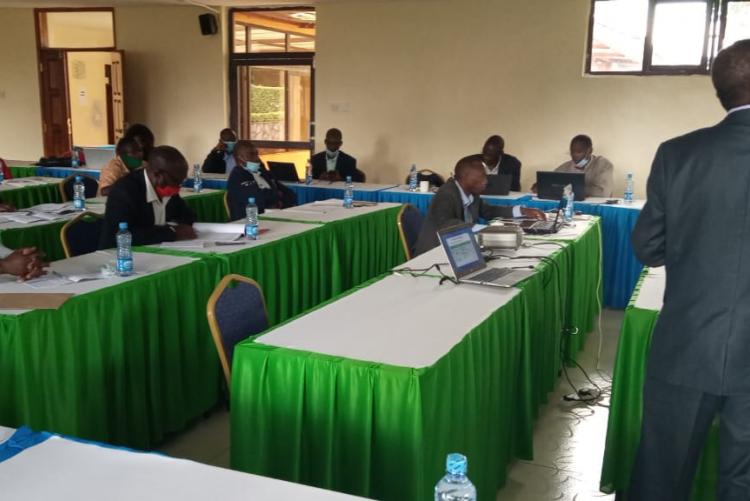The objective of the Climate Smart Agriculture Project for Kenya is to increase agricultural productivity and build resilience to climate change risks in the targeted smallholder farming and pastoral communities in Kenya, and in the event of an Eligible Crisis or Emergency, to provide immediate and effective response.
Yesterday,the department of Agricultural Economics chairman did a presentation at Kericho on Kenya Climate Smart Agriculture Project (KCSAP) monitoring report to County staff and other stakeholders. Together with him were Dr. Evans Chimoita and Dr. John Busienei, all of them from the Department of Agricultural Economics.The project is funded by World Bank and it's objective is to increase agricultural productivity and build resilience to climate change risks in the targeted smallholder farming and pastoral communities in Kenya, and in the event of an Eligible Crisis or Emergency, to provide immediate and effective response. There are five components to the project, the first component being upscaling climate smart agricultural practices. This component will finance interventions that promote and facilitate the adoption of TIMPs to achieve the CSA triple-wins of increased productivity, enhanced resilience (adaptation), and reduced GHG emissions (mitigation) per unit of output (as co-benefits). The second component is the strengthening climate-smart agricultural research and seed systems. This component will support the development, validation, and adoption of context specific CSA TIMPS to target beneficiaries under components one and three and also develop sustainable seed production and distribution systems. The third component is the supporting agro-weather, market, climate, and advisory services. This component will finance the development of agro-weather forecasting and marketing information system and their dissemination tools through three subcomponents: improving agrometeorological forecasting and monitoring; using big data to develop a climate-smart, agro weather and market information system and advisories; and building institutional and technical capacity for agro-meteorological observation and forecasting, agricultural statistics collection and analyses, and market advisory services
- Log in to post comments

